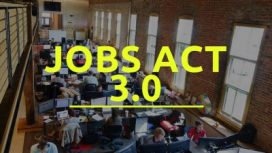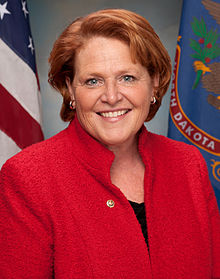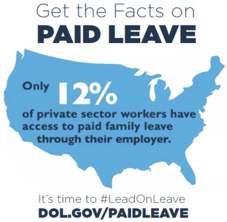See You In September
Something happens to Washington in September. The lazy hazy days of summer disappear, and the most beautiful weather arrives. The stifling heat gives way to cool days and turning leaves. And the pace really picks up. The traffic becomes impossible and days are packed with meetings and events as Washington kicks back into high gear. Given that the end of the government’s fiscal year ends on September 30, federal contractors are on high alert as the government tries to spend the remainder of its fiscal year money.
Speaking of government funding, the Congress will be back in full swing, trying to pass its FY19 spending bills before October 1. To date, no appropriations bill for FY19 has been signed by the President, although the House has passed six spending bills and the Senate has passed nine. Now the job of reconciling the differences begins. Republicans would love to show voters in November that a perk of having the party control both the House and Senate is the ability to get the fiscal year funded in a timely manner.
Another big push in September is the Supreme Court nomination of Brett Kavanaugh. Nominated by President Trump, the Senate must approve the nomination by a majority vote. Given the two-seat majority in the Senate, Republicans cannot afford to lose any of their party’s votes to confirm Mr. Kavanaugh.
This year, the legislative schedule will be shortened by the upcoming elections in November. It is customary for the Congress to recess for most of October in order to spend their time in their home states/districts campaigning. Then traditionally, the Congress calls a “lame duck” session in November/December to complete any unfinished business.
This election season is shaping up to be an exciting one, with women running in unprecedented numbers. Arizona will have its first female Senator—both primary winners were women. To date, 26 women are still in the running for the U.S. Senate, 251 for House seats and 18 for Governor. While many women did not win their primaries, this election upended the notion that party bosses have to bless candidates who run for Congressional seats and incumbents are unbeatable. Women in 2018 challenged both of those political adages.
This September starts with remembering the life of Senator John McCain who will lie in state in the Capitol Rotunda—one of only 13 Senators to have received this honor. His life and patriotism will be remembered by all walks of life – no matter the political party. The Senator so wisely said, “Nothing in life is more liberating than to fight for a cause larger than yourself, something that encompasses you but is not defined by your existence alone.”
Want to know more about our fall focus? WIPP members are invited to join us for our monthly WIPP Policy Briefing on September 12 at 2 PM EDT. Not a member? Join today!








